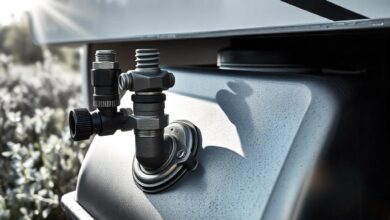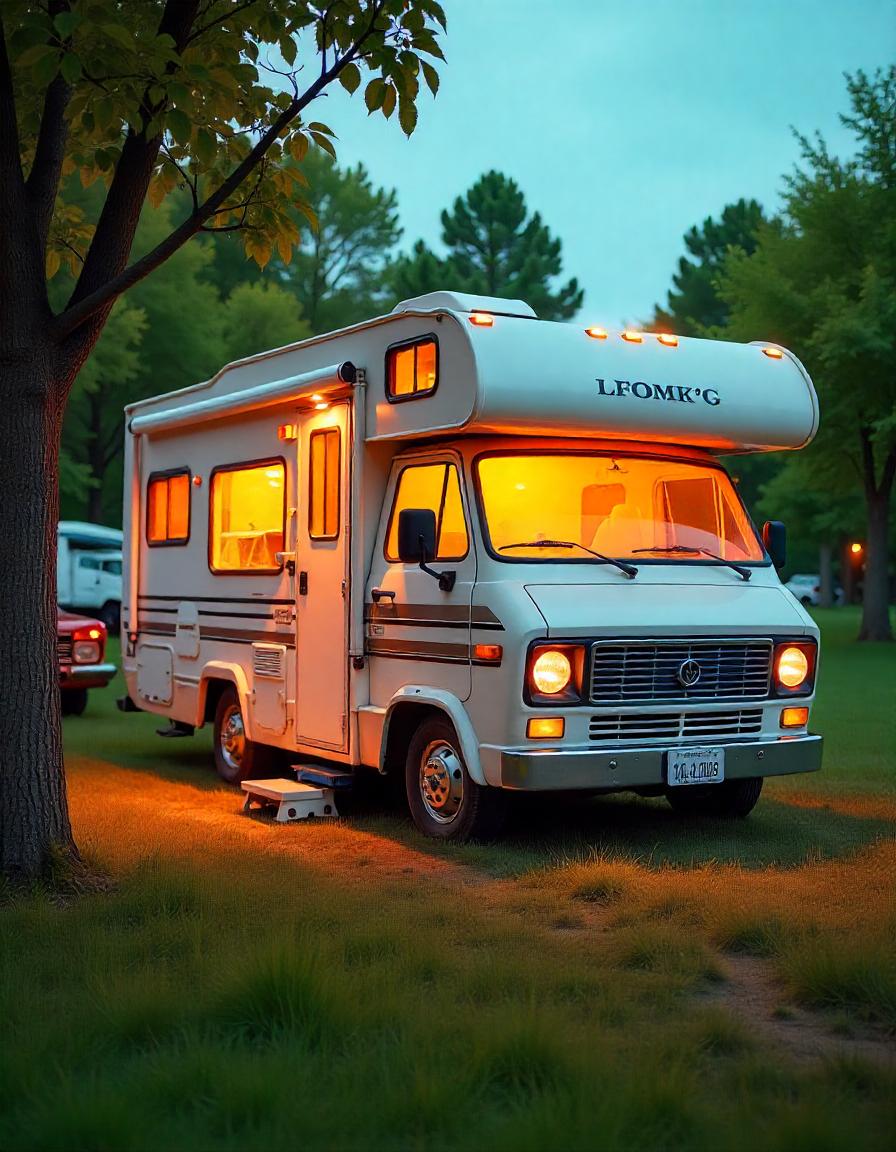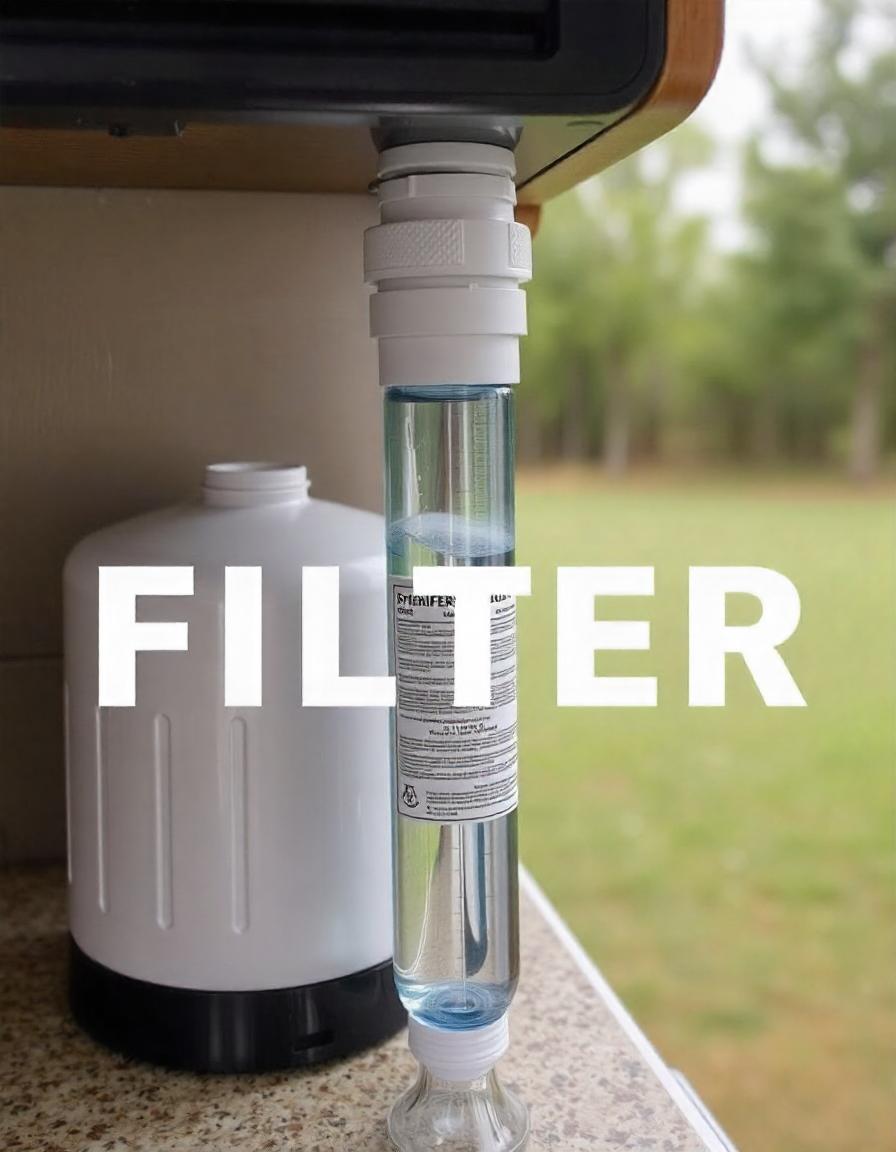What is Tank Heaters on Rv for?
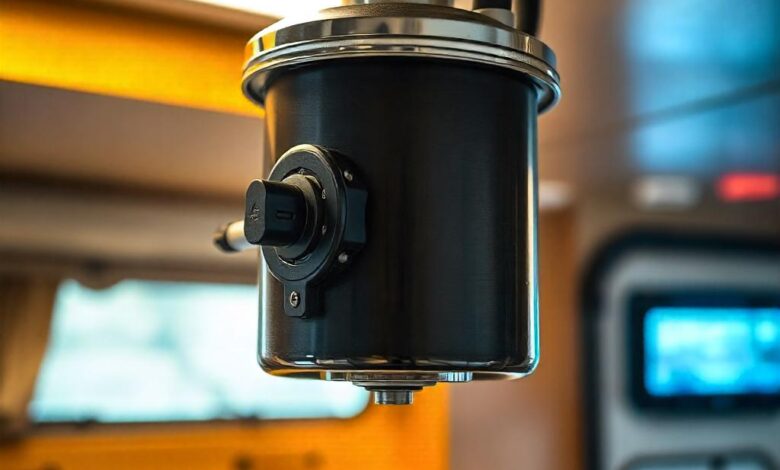
Table of Contents
The Ultimate Guide to RV Tank Heaters
During this RV group movement, there is always a familiarization with what is tank heaters in an RV for? and the reason why it is such a crucial item for fanatics of winter camping. In this comprehensive guide, we’ll cover everything you need to know about RV tank heaters: starting with the role and use of heuristics to the classification structure, when to apply them and what the benefits are.
When you come to the end of this article you will understand the purpose of a tank heater in an RV, its function, as well of ways to properly maintain it.
Why Are Tank Heaters Important for RVs?
The Dangers of Frozen Tanks
Those that RV in the winter are likely to find their water system frozen. For your information, any water that is in the RV’s tanks… fresh, grey, or black will freeze whenever the temperature falls below 32°F or 0°C. This can lead to:
- Cracked tanks
- Damaged pipes
- Blockages in your plumbing system
- Costly repairs
The tank heater in an RV is actually created to do exactly what has been described above and stop these problems from occurring. It keeps the water in the tanks above the freezing point, thereby allowing you to use your plumbing system of your RV.
How Tank Heaters Keep Your RV Functional?
Picture yourself boiling water for washing dishes or for flushing your toilet and suddenly wakes up to a snowy environment with water now in an icy state. This is true if you don’t have a tank heater on your RV. Once one is in place, you are able to enjoy your trip without having to be under so much concern with the water flow.
How Does a Tank Heater on an RV Work?
A tank heater on an RV typically operates as an electric heating pad, adhering to the base of the water tanks. Here’s a breakdown of its functionality:
Components of a Tank Heater
- Heating Pads: The main part, these pads warm the tanks by creating heat.
- Thermostat: Sometimes you can get a tank heater with a thermostat that takes action and starts heating the tank when the temperature drops below a specific limit.
- Power Source: Heater can be with electric, propane, and in some of RVs with solar panels also as the source of energy.
Types of Power Systems
- 12-Volt DC Power: Many RV tank heaters run on the vehicle’s battery, making them ideal for boondocking or off-grid camping.
- 120-Volt AC Power: When plugged into shore power at an RV park, tank heaters often run on standard electrical hookups.
- Propane-Powered Heaters: Some RVers prefer propane-powered heaters for tanks, especially when they want to conserve battery power.
Automatic vs. Manual Activation
Tank heaters come in two varieties:
- Automatic Heaters: These have built-in thermostats that activate the heater when temperatures drop below freezing.
- Manual Heaters: These require you to manually turn them on when the weather gets cold. While less convenient, they give you full control over their usage.
The Heating Process
Once activated, the heating pads begin to warm the underside of your RV’s water tanks. The heat radiates through the tank walls, preventing the water inside from freezing. Depending on the outside temperature and the size of your tanks, the heater will keep your water at a safe temperature for use.
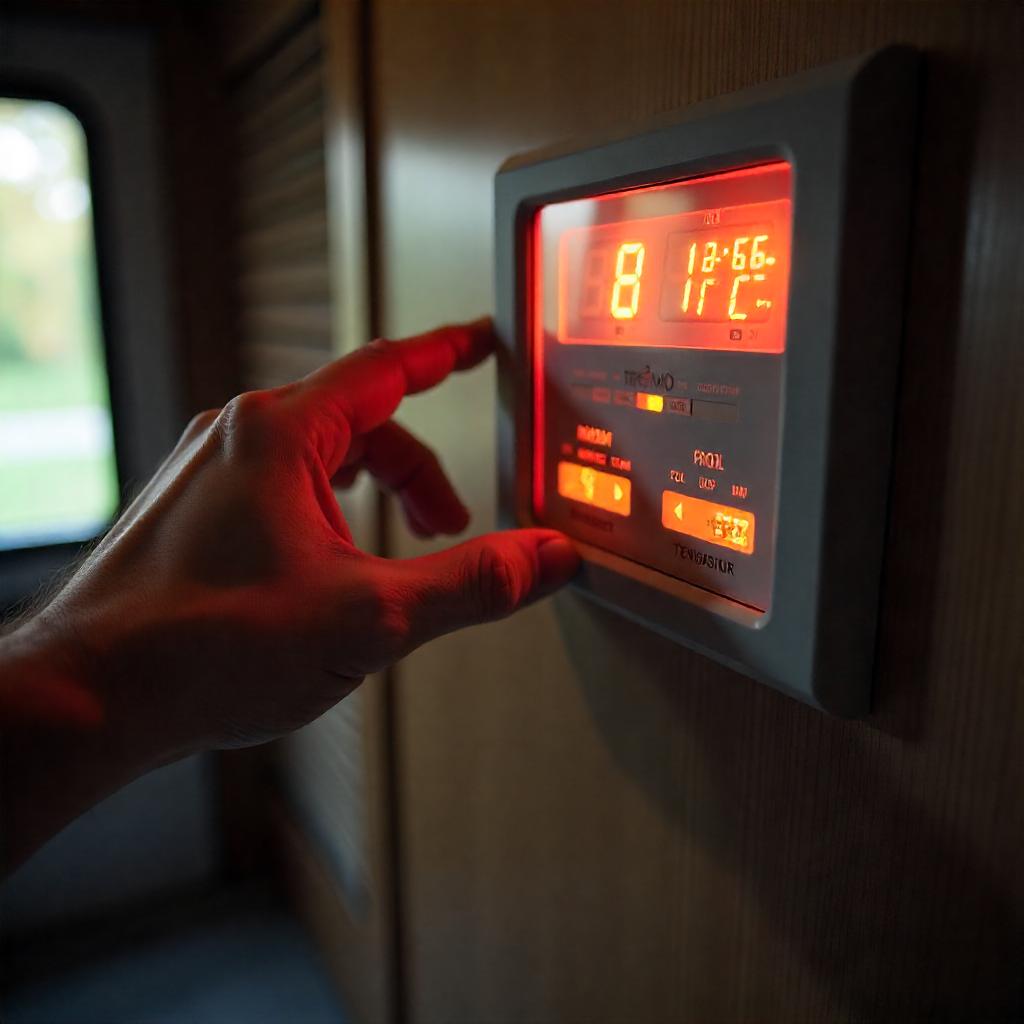
Types of RV Tank Heaters
There are several types of RV tank heaters, each designed for specific purposes. Understanding these can help you make the right choice for your vehicle.
Fresh Water Tank Heaters
These heaters are designed to keep your potable (drinking) water from freezing. Maintaining a flowing water supply is essential for drinking, cooking, and hygiene.
Grey Water Tank Heaters
Grey water consists of wastewater from sinks and showers. It might not seem as critical as fresh water, but if it freezes, the system can back up and become unusable.
Black Water Tank Heaters
These heaters are especially important for RV toilets. Frozen black water tanks can cause sanitation problems, blockages, and bad odors in your RV. The black water tank heater ensures the waste flows out smoothly, even in freezing conditions.
Comparison Table: Types of RV Tank Heaters
| Type of Tank Heater | Purpose | Key Benefits |
|---|---|---|
| Fresh Water Tank | Prevents potable water from freezing | Ensures access to drinking and cooking water |
| Grey Water Tank | Keeps sink and shower wastewater flowing | Prevents plumbing blockages |
| Black Water Tank | Maintains toilet waste flow | Avoids sanitation issues and bad odors |
When Should You Use a Tank Heater?
Knowing when to use the tank heater on your RV is essential for preserving energy and ensuring safety. Here are some scenarios where a tank heater is crucial:
Winter Camping
If you’re planning to camp in areas where temperatures drop below freezing, your tank heater should be on. The risk of frozen pipes and tanks is highest during winter months, especially in mountainous or northern regions.
Read Also : Can Garden Rubber Pads Work on RV Stabilizer Pads? : Where to Complain About RV Consumer Problems? : Are Two 6 Volt Batteries Better for RV?
Cold Climate Travel
Even if you’re not camping but are driving through cold regions, it’s important to use your tank heater. Cold winds during travel can cool down your tanks, leading to freezing.
RV Storage in Cold Areas
If you store your RV outdoors in a cold climate, consider leaving the tank heater on to prevent the tanks from freezing over time. This is particularly important if you have water remaining in the tanks.
Temperature Monitoring for Tank Heaters
Many modern tank heaters come with temperature monitoring systems. These allow you to track the internal and external temperatures and ensure the heater is functioning optimally. For example, some models have digital displays that show when the heater is active.
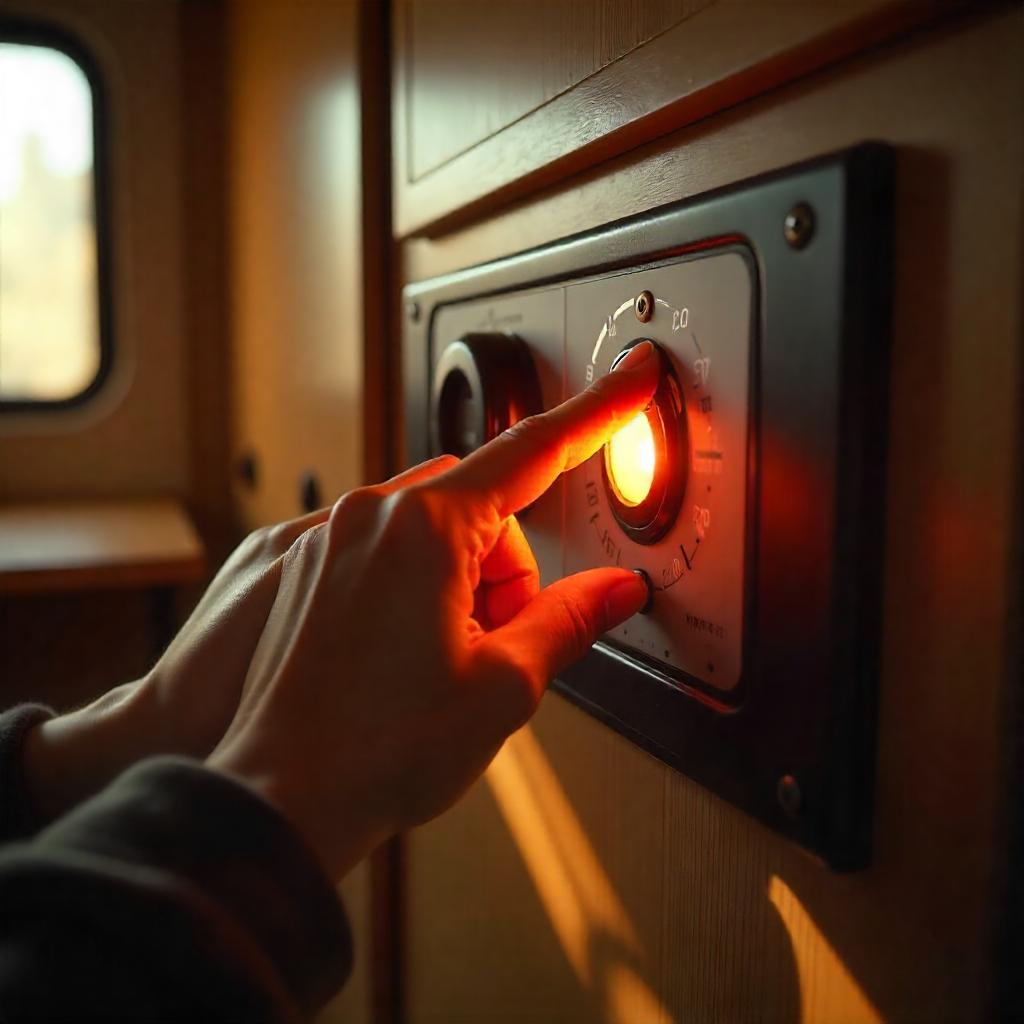
How to Maintain Your RV Tank Heater?
To ensure your tank heater on RV works efficiently, regular maintenance is key. Here are some steps to follow:
Inspect Heating Pads
Regularly check the heating pads under the tanks for any signs of wear or damage. Cracks or burns can reduce their efficiency.
Test the Thermostat
Heaters with auto thermostat should also be checked from time to time to help them turn on when the temperature required is reached. Operational manual heaters also require attention and should be checked to see if they has no defect in turning on or off.
Monitor Power Supply
Make sure that your RVs power system is capable of handling the tank heater. This is an important aspect especially in the case of 12V DC system since operating this heater for an extended time goes along with battery drainage.
Benefits associated with using a Tank Heater on an RV
Now that we’ve covered what a tank heater on RV is for, let’s look at some of the key advantages:
1. Protects Plumbing and Tanks
Freezing can as well lead to severe damage to the tanks as well as the plumbing system of your RV. As a result of using a heater you can avoid spending lots of cash on repair bills.
2. Extends the RVing Season
Having a tank heater means it is possible to RV during the snowy months, and that is a whole other possibility.
3. Convenience and Peace of Mind
The availability of functional water system eliminate all the problems associated with water supply, waste and sanitation in ones journey.
Common Misconceptions About RV Tank Heaters
There are several misconceptions about what a tank heater on RV is for. Let’s debunk a few:
- Myth: You only need a tank heater in extreme cold.
- Truth: Even temperatures slightly above freezing can cause issues with your water tanks.
- Myth: Tank heaters consume too much energy.
- Truth: Modern tank heaters are energy-efficient, especially those with thermostats that only activate when necessary.
How to Choose the Right Tank Heater for Your RV?
When selecting a tank heater for your RV, consider these factors:
1. RV Model Compatibility
Not all heaters are compatible with every RV model. Ensure that the heater you choose is the right size and power rating for your specific RV tanks.
2. Power Source
If you’re often boondocking or camping off-grid, a propane or 12-volt heater may be more suitable than an AC-powered heater.
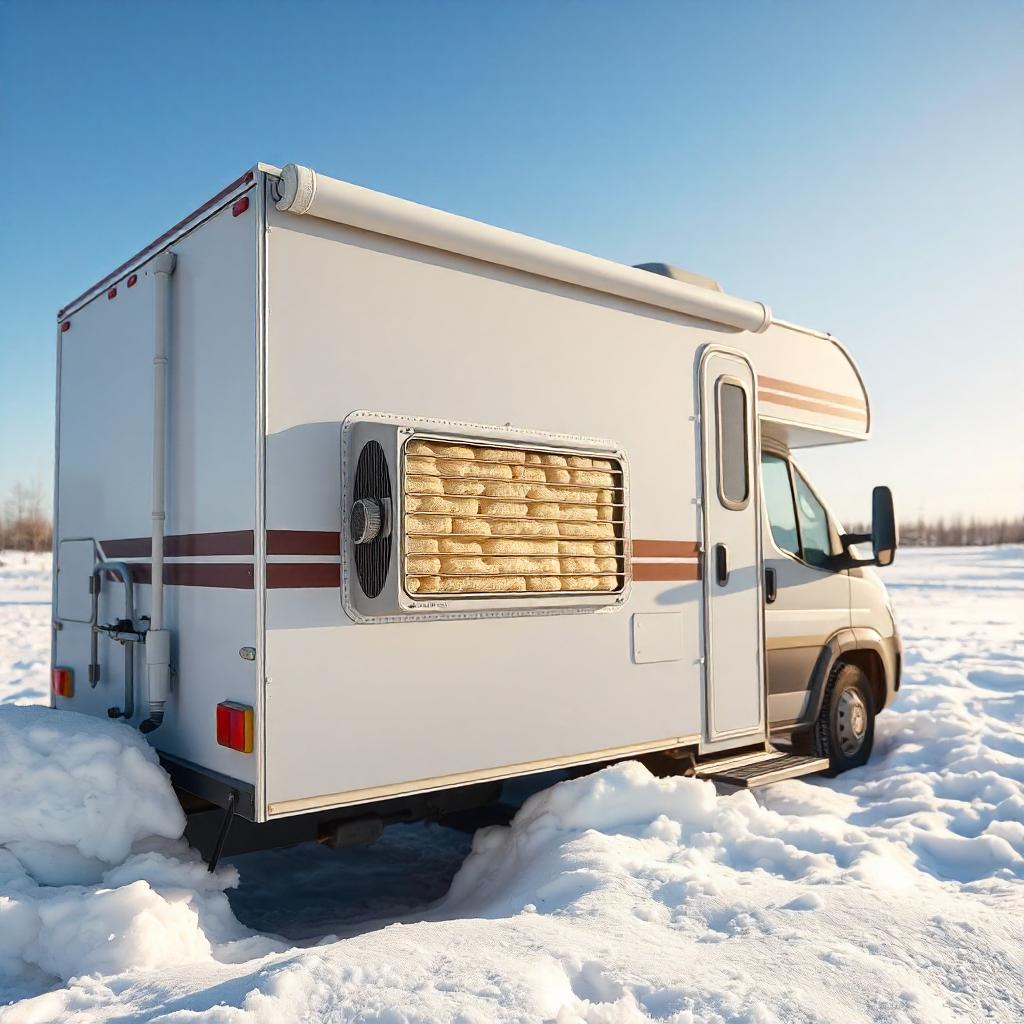
3. Automatic vs. Manual Control
While automatic heaters are more convenient, manual heaters give you more control over energy usage.
4. Climate Conditions
If you frequently travel in colder regions, investing in a high-quality heater that can withstand extreme cold is essential.
Summary Table: Key Factors in Choosing a Tank Heater
| Consideration | Options Available | Best For |
|---|---|---|
| Power Source | 12-volt DC, 120-volt AC, propane | Off-grid vs. park camping |
| Control System | Automatic, manual | Convenience vs. control |
| Tank Compatibility | Fresh, grey, black water tanks | Different systems in your RV |
| Climate Adaptation | Standard, heavy-duty for extreme cold climates | Winter travelers or cold regions |
Conclusion
So, what is tank heater on RV for? It’s essential for any RVer planning to travel in cold weather or store their RV in freezing temperatures. A tank heater ensures that your water systems—whether fresh, grey, or black—remain functional and safe from freezing damage.

